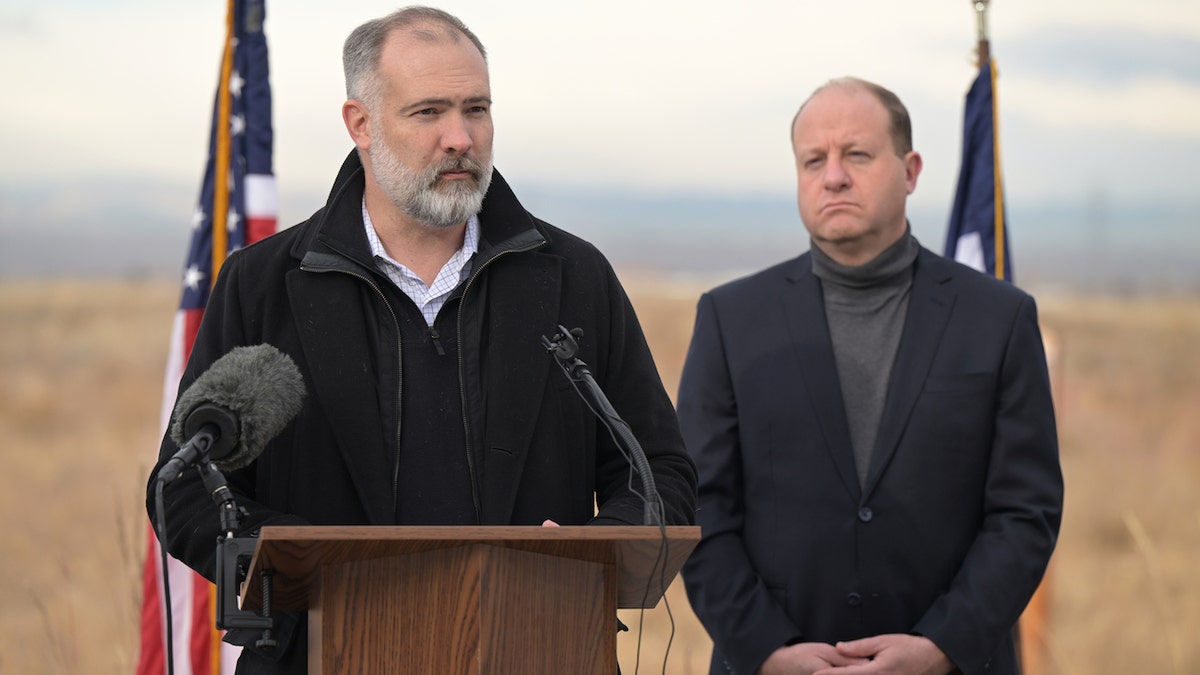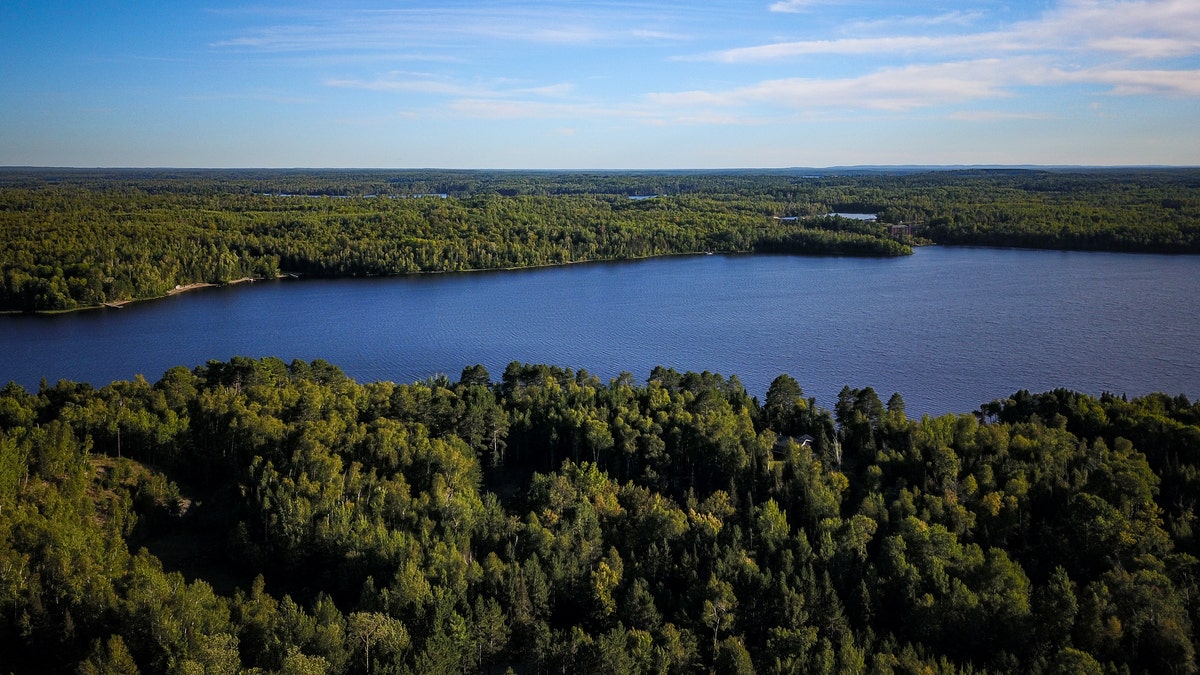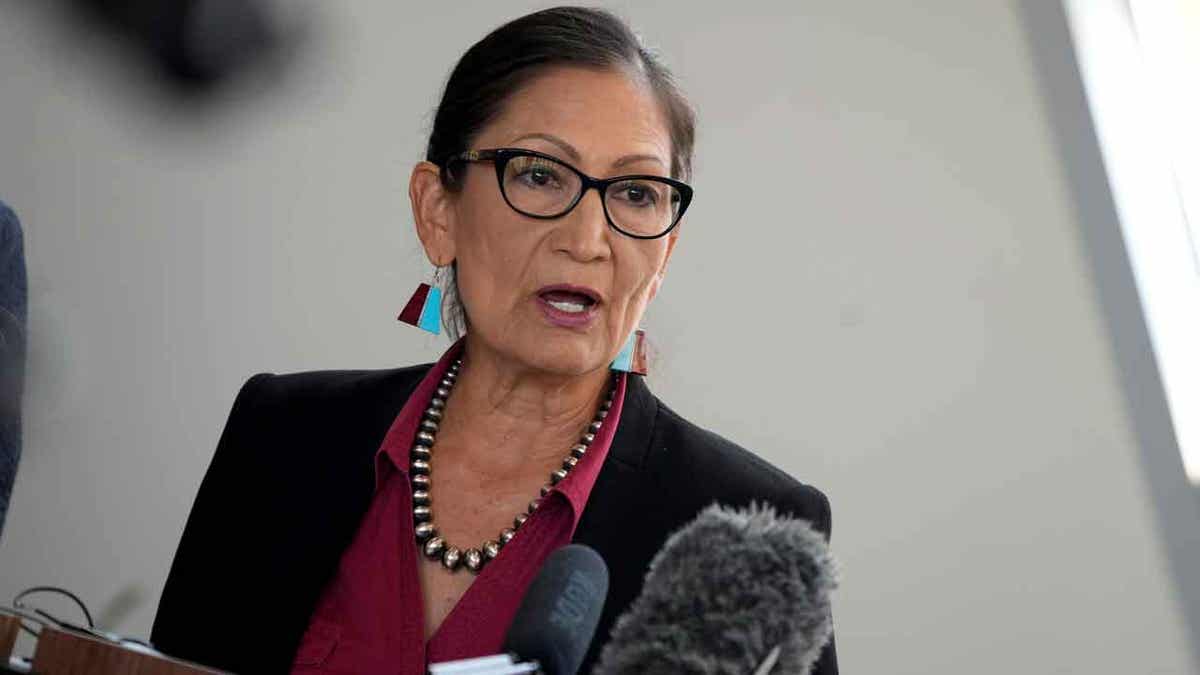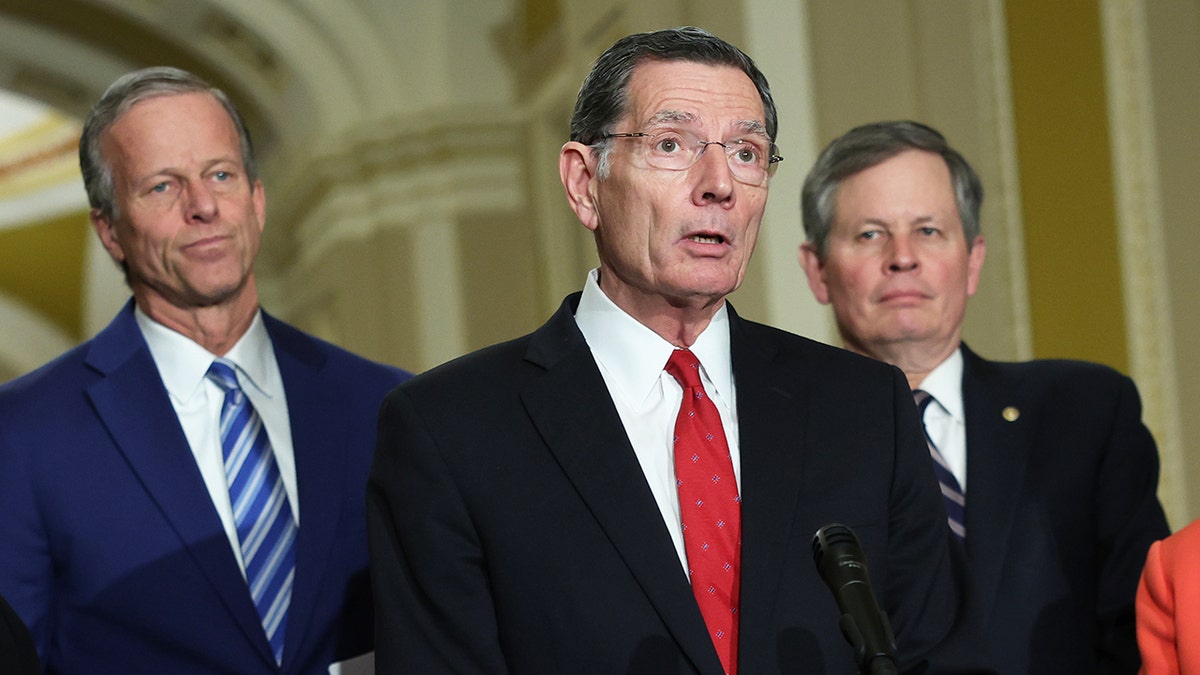Gov. Doug Burgum hits at Biden energy policies: 'Wrong on every front'
Presidential candidate Gov. Doug Burgum joins 'Fox & Friends' to discuss his economic success in North Dakota, his plan to correct damage from Biden administration policies and his Achilles injury.
The Biden administration published a long-awaited final report outlining steps and policy recommendations it said would help modernize mining regulations, but critics say they would create more burdensome red tape.
The federal Interagency Working Group on Mining Laws, Regulations, and Permitting (IWG) published the report listing 65 recommendations Tuesday, saying it will inform efforts to update the General Mining Act of 1872.
Environmentalists have long called on the federal government to update laws to ensure more stringent protections for wildlife, plants and the environment surrounding mining projects.
"The biggest takeaway from the report is that our 150-year-old law, literally the 1872 mining law signed by President Graham for accessing minerals on public lands, needs to be reformed and brought into the 21st century," IWG Chair and Deputy Interior Secretary Tommy Beaudreau told reporters during a press call.

Deputy Secretary of the Interior Tommy Beaudreau speaks alongside Colorado Gov. Jared Polis in Commerce City, Colo. Dec. 14, 2022. (Hyoung Chang/The Denver Post via Getty Images)
"We need to employ the same tools that have been so successful in standing up thousands of megawatts of renewable energy on public lands and offshore," he continued. "This includes a leasing program that targets resources while reducing conflicts with local communities, wildlife habitat and essential water resources."
In addition to recommending a leasing program for critical mineral deposits, Beaudreau added that the report recommends that companies pay royalties on land they are approved to mine for resource development. He explained that the current structure with no royalties is why there is little funding for addressing abandoned mines he said create "safety hazards and pollution for land and water across our country."
BIDEN ADMIN ECO RULE CURBING OIL DRILLING, MINING FACES WIDESPREAD OPPOSITION
In addition, the report recommends a controversial 7-cent per ton fee on material displaced by hard rock mining, a proposal that would also increase prices for the mining industry, dubbing the fee a "dirt tax."
Interior Secretary Deb Haaland announced the creation of the IWG in February 2022, months after the White House ordered a review of the domestic supply chain and recommended solutions to expand "sustainable, responsible critical minerals production and processing."
Haaland said the task force's work was important to "meet the needs of the clean energy economy."

The Biden administration has taken several steps to restrict mining on federal land, citing environmental concerns. For example, the Department of the Interior banned mining across 225,504 acres near the Boundary Waters Canoe Area Wilderness in Ely, Minn. (Salwan Georges/The Washington Post via Getty Images)
"Unfortunately, if the Biden-Harris administration’s stated objective is to secure our nation’s domestic mineral supply chains while supporting responsible mining, the recommendations contained in this report don’t do anything to advance the ball," Rich Nolan, the president and CEO of the National Mining Association, said in a statement shared with Fox News Digital.
"In fact, some of the recommendations — including the consideration of a leasing system, imposition of a punitive dirt tax or application of the higher end of suggested proposed royalties — will throw additional obstacles in the way of responsible domestic projects and would-be investment, forcing the U.S. to double-down on our already outsized import reliance from countries with questionable labor, safety and environmental practices."
GREEN ENERGY PROJECTS FACE STARK ENVIRONMENTAL, LOCAL OPPOSITION NATIONWIDE
Nolan added that, while his organization is still reviewing the report, the U.S. remains "critically outmatched" on mining for critical minerals needed for key technologies.

Interior Secretary Deb Haaland speaks during a news conference July 22, 2021, in Denver. (AP Photo/David Zalubowski, File)
Sen. John Barrasso, R-Wyo., the ranking member on the Senate Energy and Natural Resources Committee, also blasted the IWG report Tuesday.
"President Biden is taking a sledgehammer to affordable, reliable energy," Barrasso said. "Today’s proposed mining reforms will force us to buy more critical minerals from mines using forced and child labor instead of harnessing our abundant resources here at home.
"Permitting mines in the U.S. can take over a decade," the Wyoming Republican added. "These proposals will slow the process even further. If the Biden administration’s reforms are enacted, Americans will be even more dependent on imports from our adversaries, including China."
However, the report was lauded by Raul Grijalva, D-Ariz., the House Natural Resources Committee ranking member who has led efforts in recent years to create a new regulatory regime governing mining nationwide. Grijalva said Tuesday he would work to implement the "long-overdue reforms" outlined in the IWG report via legislation such as Grijalva and Democratic New Mexico Sen. Martin Heinrich's Energy Minerals Reform Act.

Sen. John Barrasso, R-Wyo., speaks to reporters at the U.S. Capitol March 28. Barrasso criticized the Biden administration's report on mining Tuesday. (Kevin Dietsch/Getty Images)
Critical minerals are a vital component of the burgeoning green energy industry. Green energy technologies like electric vehicle batteries, battery storage facilities, solar panels and wind turbines require a massive expansion of cobalt, copper, lithium, nickel, graphite, zinc and other mineral production, according to the International Energy Agency.
For example, an electric vehicle requires 500% more mineral resources than a traditional gas-powered car while a single onshore wind turbine plant requires 800% more minerals than a typical fossil fuel plant.
CLICK HERE TO GET THE FOX NEWS APP
China and other hostile nations dominate the global mineral supply chain even as the U.S. and Western nations rapidly push a transition to green energy technologies. In 2022, the U.S. mined just 3.8% of global copper supplies, 5.9% of global zinc supplies, 0.55% of global nickel supplies, 0.42% of global cobalt supplies and 0% of global graphite supplies, federal data showed.
At the same time, the Biden administration has taken steps to slow mineral production. The Department of the Interior has moved ahead with 20-year mining bans in areas rich with key minerals in Minnesota and South Dakota, while President Biden has established national monuments in Nevada and Arizona, effectively blocking mining in those areas.















































